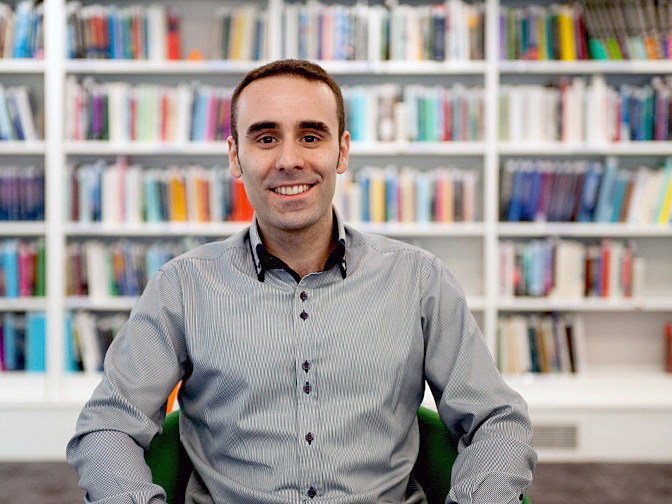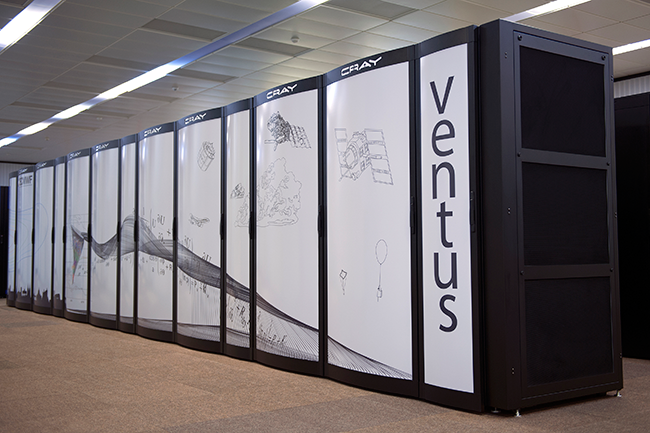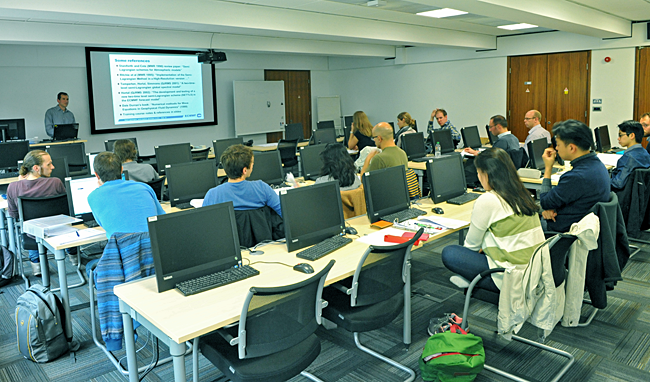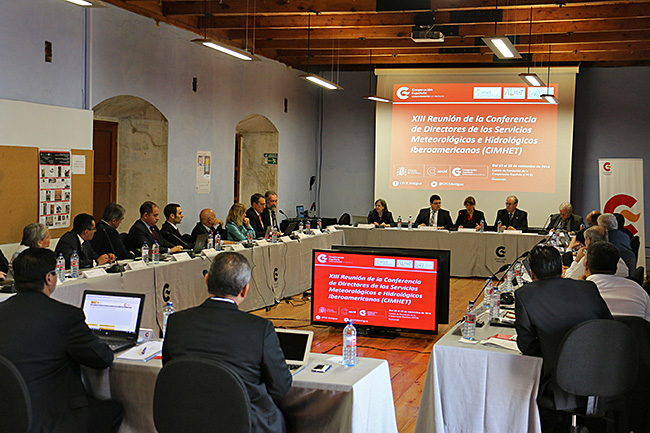

A dedicated team at ECMWF provides support and advice to an international set of users of ECMWF’s computing and data resources, including the high-performance computing facility.
Multi-talented Xavier Abellan is part of the crew.
His team deals with more than 3,000 computing users and 10,000 users with web-only access to the data.
Xavier has been immersed in scientific environments and supercomputing since his student days. Half-way through his five-year degree course in computer science, he started working part time in user support at Spain’s national supercomputing centre in Barcelona, BSC.
Moving quickly from first-level to second-level support, he advised scientists working on projects ranging from the life sciences to physics.
“Five years on, in 2012, there was an opening at ECMWF and it looked like an exciting opportunity to try something new in a different country,” he recounts.
Another five years later, Xavier’s technical expertise as well as his language, communication and teaching skills have made him a mainstay in ECMWF’s User Support Section.
Varied user needs
As part of his job, Xavier communicates with a wide variety of scientists working on many different projects related to weather and climate.
“We provide technical support to all users of our computing resources, external ones in our 34 Member and Co-operating States as well as scientists working at the Centre,” he notes.
Like the rest of the team, he enjoys helping them to overcome their problems. “We are here to make their life easier when they use our resources, so their success becomes our success.”

ECMWF’s high-performance computing facility comprises two Cray XC40 supercomputers.
Importantly, computing resources means not just ECMWF’s high-performance computing facility (HPCF), made up of two Cray XC40 supercomputers, but also some post-processing clusters and a large-scale data handling system.
The latter includes the world’s biggest meteorological archive, MARS.
Part of Xavier’s role is to advise users on how to make efficient use of the archive and how to structure the jobs they want to submit to the supercomputer.
Special attention is paid to time-critical work Member State users can run at ECMWF, where the team plays an important role in preparation and maintenance.
“Our job is particularly challenging when there is an HPCF or model upgrade, when we help to adapt the computing workload to the new platforms or model configurations. We need to continuously develop our knowledge and skills in a changing environment,” Xavier says.

A model upgrade in 2016 brought a significant increase in horizontal resolution up to a grid spacing of 9 km. As a result, the workload handled by the Centre’s computing resources went up too.
The ultimate goal is to minimise the number of times users need to turn to the team for support, thus enabling them to achieve their objective as quickly as possible.
“Good training and documentation as well as providing a friendly working environment and the right set of tools are the key to achieving that goal.”
During his time at ECMWF, Xavier has had to acquire sufficient knowledge in numerical weather prediction to be able to communicate effectively with the people he supports and to understand their needs.
“We act like a bridge between the worlds of meteorology and computing, between the scientists and the tools they use,” he says.
The fact that he speaks Spanish and Catalan as well as English helps.
“Many users in our Member and Co-operating States really appreciate the fact that there’s somebody here with whom they can communicate in their language. In our team we have divided the 34 countries we serve between us to make the best use of our diverse linguistic and technical skills.”
Training
In addition to providing user support, Xavier helps to deliver ECMWF training courses related to computing and data access and manipulation.
These courses are at the intersection of computing and meteorology.

Training courses given by user support staff combine lectures with practical exercises.
They cover topics such as data formats used in meteorology, workflow packages and the use of ECMWF’s computing resources, including MARS.
“We combine lectures with practical exercises and hands-on sessions,” Xavier emphasises. “It’s important for the participants to apply what we teach on the course.”
Experience of teaching he gained during his student years and later at the BSC has helped him to feel at home in his training role.
He admits that on occasion users may have questions related to meteorology which he cannot immediately answer.
“The first thing you have to realise in user support is that you can’t know everything. But you do have to know where to go to find the answer.”
Trips
Xavier’s job also comes with some opportunities to travel abroad.
“The trips we make are mainly to Member and Co-operating States as part of a regular programme of such visits,” he explains.
“The host country can decide what they want to focus on during the visit. This may for example include some bespoke training on certain aspects of computing or data access.”
A recent trip was a bit out of the ordinary, however.
In November, Xavier travelled to Guatemala for the 13th Conference of the Directors of Ibero-American Meteorological and Hydrological Services (CIMHET).

The CIMHET meeting attended by Xavier brought together the Directors and delegates from 20 Ibero-American national meteorological and hydrological services.
It was an opportunity to explain to the 20 services represented at the event what kind of forecast products ECMWF can offer.
If in this instance there was a marketing element to his job, Xavier is comfortable with it.
“Before going into supercomputing, I worked as a sales assistant selling consumer electronics. Every bit of experience helps. You never know how what you are doing today may come in handy in years to come.”
